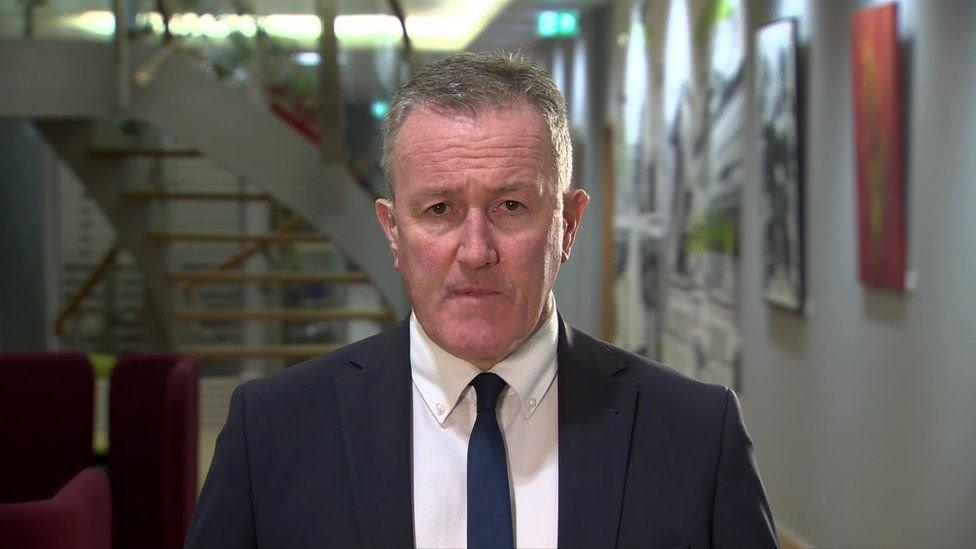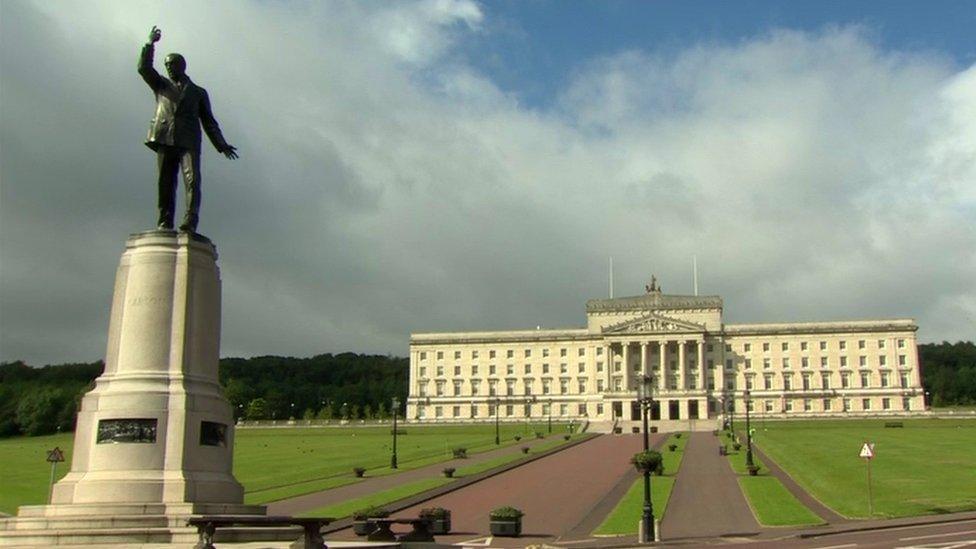Covid-19: Stormont budget ‘very challenging’ economists warn
- Published
- comments

Economists say it is 'concerning' additional funding has not been allocated to support the rebuilding of the economy post-Covid
Stormont's draft budget is 'a very challenging funding settlement', Ulster University economists have warned.
The budget was published in January 2021.
It showed only a marginal cash increase in core funding for day-to-day spending.
In January, Finance Minister Conor Murphy warned the budget was "difficult and effectively a standstill of our 2020-21 budget position".
He said the UK Treasury had not delivered the required level of support "to kick-start our economic recovery from Covid-19 and Brexit'.
'Concerning budget allocation'
Those sentiments are largely echoed in the analysis by the Ulster University Economic Policy Centre, external (UUEPC).
It says it is "concerning" additional funding does not appear to have been identified to support the rebuilding of the economy post-Covid.
The analysis states: "The economy has suffered a shock unprecedented in scale and the budget allocation for the Department for the Economy is below (in real terms) its pre-Covid budget."
The UUEPC also points to falling funding for skills and career development over the last decade.

Conor Murphy said the UK Treasury had not delivered 'the required level of support' for economic recovery after the pandemic
Using official data, they estimate that between 2011 and 2019 it fell in cash terms from £99m to £68m.
They warn this could hamper the ambition to 'build back better' by creating more higher skill jobs.
On Monday, health leaders warned that the draft budget is inadequate to tackle post-pandemic waiting lists.
Health spending is due to increase by 5.7% taking its day-to-day spending to almost £6.5bn in 2021-22.
But the chairs of Northern Ireland's health trusts and other bodies say there are still significant shortfalls.
They say the budget will not be enough to address "existing deficits and new inescapable cost pressures in 2021-22".
Related topics
- Published1 March 2021

- Published25 November 2020

- Published24 July 2020
